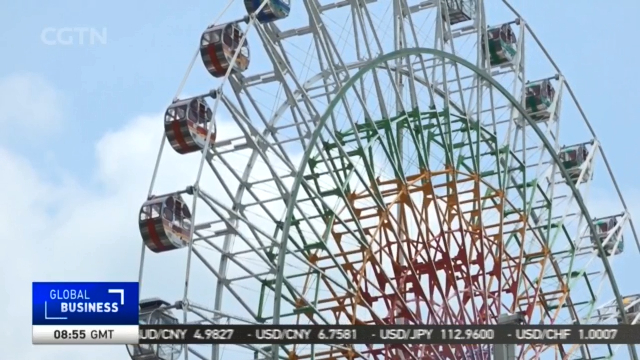
17:19, 19-Jul-2018
Mobile Payment: WeChat Pay seeing more usage in Japan
Updated
16:38, 22-Jul-2018
02:55

Mobile payment has become an indispensable part of Chinese consumption. And Tencent, which owns WeChat pay, is setting its sights on further expansion. The company said earlier this month that it would partner with Fuji Q resorts to be its official mobile payment provider. CGTN's Li Jiejun has more.
Simply scan the barcode, and use Tencent's WeChat to pay. This is common practice in China. And Japan is slowly embracing that, especially at Fuji-Q Highland park.
CHINESE TOURIST "I like this experience. No need to line up to pay. We can finish the payment by ourselves. The Japanese yen can be converted to RMB directly. And we can get discount by using WeChat pay."
JAPANESE CASHIER "In our store, about 10 percent of Chinese tourists use WeChat pay. 10 percent use Union Pay. And the rest still prefer to use cash. We hope more people will use mobile payment. That will make it easier for us."
On July 19th, WeChat Pay became an official mobile payment partner for Fuji Q Highland. Visitors can pay using WeChat at most of the stores in the park. They can also use WeChat to buy tickets at a discount, explore the map and check how long queues are. This is meant to give Chinese travelers a brand-new experience.
ZHENG HONGMIN, MARKETING DIRECTOR WECHAT PAY INT'L BUSINESS, TENCENT "Wechat pay's target users in Japan are Chinese tourists. We used to collaborate with companies in the retail and catering industry, but now we want to bring convenience to tourists in more aspects, such as entertainment. Over 6 million Chinese tourists visited Japan last year. As of June this year, the average number of daily transactions has increased more than 6 times compared with the same period last year. And the total trading amount rose over 5 times."
WeChat pay entered the Japanese market in 2016, and its usage has spread fast. Chinese tourists now whip out their smartphones at the register in Japan. However, achieving this was not easy. E-payment is developing slowly in Japan, as locals heavily favor cash. Only about one-fifth of all payments are cashless, compared with around 50% for China. But the tide is slowly shifting, and more businesses are willing to collaborate with mobile payment platforms to attract Chinese tourists. The Japanese government also announced to further develop mobile payment to stimulate tourist spending.
LI JIEJUN HONG KONG "As the 2020 Tokyo Olympics approach, Japan is heading toward being a cashless society. This, also, is an opportunity for Chinese e-payment platforms to grab a bigger market share. LJJ, CGTN, Tokyo."

SITEMAP
Copyright © 2018 CGTN. Beijing ICP prepared NO.16065310-3
Copyright © 2018 CGTN. Beijing ICP prepared NO.16065310-3